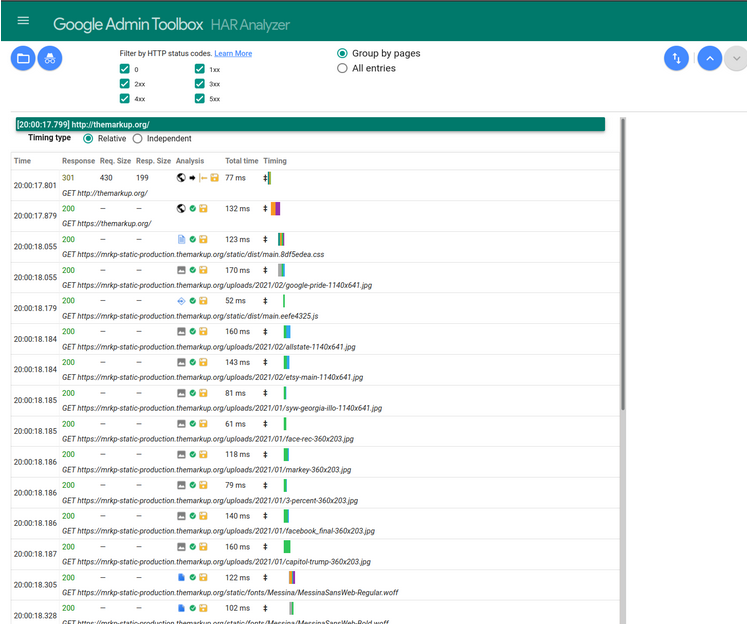
🧵 Our #Blacklight project was created because we wanted to give our readers a sense of agency about their relationship to technology.
Our tool is a real-time privacy inspector that visits user-requested websites, scans for known types of privacy violations, and returns an instant privacy analysis of the inspected site.
Today, #Blacklight scanned its one-millionth website, a milestone for us personally and for you, our readers.
With privacy at the center of our mission, we don’t have a list of fun facts about what people have scanned since we launched the product in September. That would go against everything we stand for.
With that in mind, here are a couple of facts we have observed that we think you will find interesting. We certainly do.
You can effectively turn Blacklight into an app at your fingertips on a mobile device by adding the URL themarkup.org/blacklight to your home screen via your phone’s native browser sharing menu. 👏👏👏 @restofworld’s @donohoe for teaching us this trick. 



We loved seeing the curiosity of @Reddit users this October. One month after we launched Blacklight, the tool hit Reddit’s front page. In 24 hours, more than 120,000 sites were scanned. This was by far our busiest day of scans since launch. 

Blacklight was built with accountability in mind. It allows users to download a copy of the report, along with all the data created during the inspection.
Click on the “‘Learn more” button to open a drop-down menu containing screenshots of the pages that were visited by the tool in your search and a link to “download an archive” of the results. 

One of the most useful files in the archive is called requests.har. It contains all the network requests that were made during Blacklight’s inspection.
Because network requests show how a website and server communicate, we monitor them to watch for information a given site may be leaking. Even after a report has finished running, this data verifies where the leaked information was sent.
You can easily view this file using Google’s HAR Analyzer or by loading it straight into Firefox’s Web Inspector’s Network Tab. 

This feature was incredibly useful during our initial investigation as it allowed @asankin to share exactly what Blacklight found when he reached out to websites that we discovered were leaking user data. themarkup.org/blacklight/202…
If you would like to learn more about how and why we built #Blacklight, we like to show our work! Read the in-depth story from our investigative data journalist @suryamattu and investigative reporter @asankin. themarkup.org/blacklight/202…
• • •
Missing some Tweet in this thread? You can try to
force a refresh


